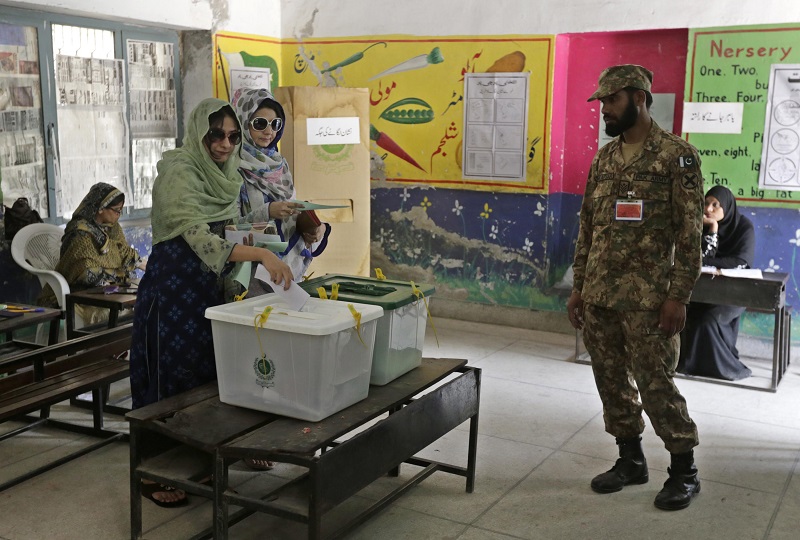Pakistan’s Parliament should make improvements to a draft election bill that could harm election transparency and limit access to information, the International Press Institute (IPI) said today, joining a call by civil society organisations and activists in the country.
In a Jan. 16 report, the Free and Fair Elections Network (FAFEN), a Pakistani NGO, criticised stringent punishments for unauthorised disclosure of information, a ban on scrutiny of candidates during the nominating process and a failure to require the country’s Election Commission to timely disclose essential, election-related information.
“The Draft Elections Bill, 2017, represents a step forward, but still requires critical improvements to ensure the independence and authority of the Election Commission of Pakistan (ECP) over all aspects of an election as a prerequisite for free, fair and transparent General Election due in 2018,” FAFEN said.
The group was particularly critical of one section that would punish Election Commission officers who share information outside the chain of command, as well as those who receive leaked information. Both could face a fine of up to five million rupees (approx. €45,000) and up to five years in prison, a penalty that FAFEN pointed out exceeds that set forth for corrupt and illegal practices.
“How is leaking information or identifying weaknesses worse than rigging or corruption?”, rights activist Sarwar Bari asked at a press conference unveiling FAFEN’s report.
The group also noted that it was not clear to which type of information or data the section on leaking referred, rendering it potentially prone to abuse.
IPI welcomed aspects of the draft election bill addressing important weaknesses in Pakistan’s electoral system. However, IPI Director of Advocacy and Communications Steven M. Ellis called on Parliament to heed FAFEN’s recommended changes on transparency and access to information.
“If the bill passes in its current form, it would make it difficult for members of the media to cover elections and fulfil their democratic role of ensuring transparency and accountability in the election process,” he said. “We are especially concerned by provisions targeting potential whistle-blowers with greater severity than those engaged in corruption and criminalising those who receive leaked information. We urge lawmakers to drop the latter, a clear threat to media freedom, and to ensure that any penalties for leakers are proportionate and cannot be used to target those who release information in the public interest.”
During a Consultation Meeting FAFEN held on Thursday in Islamabad, leaders of 15 political parties expressed reservations about the draft bill and urged the government to work with political parties to improve it.
